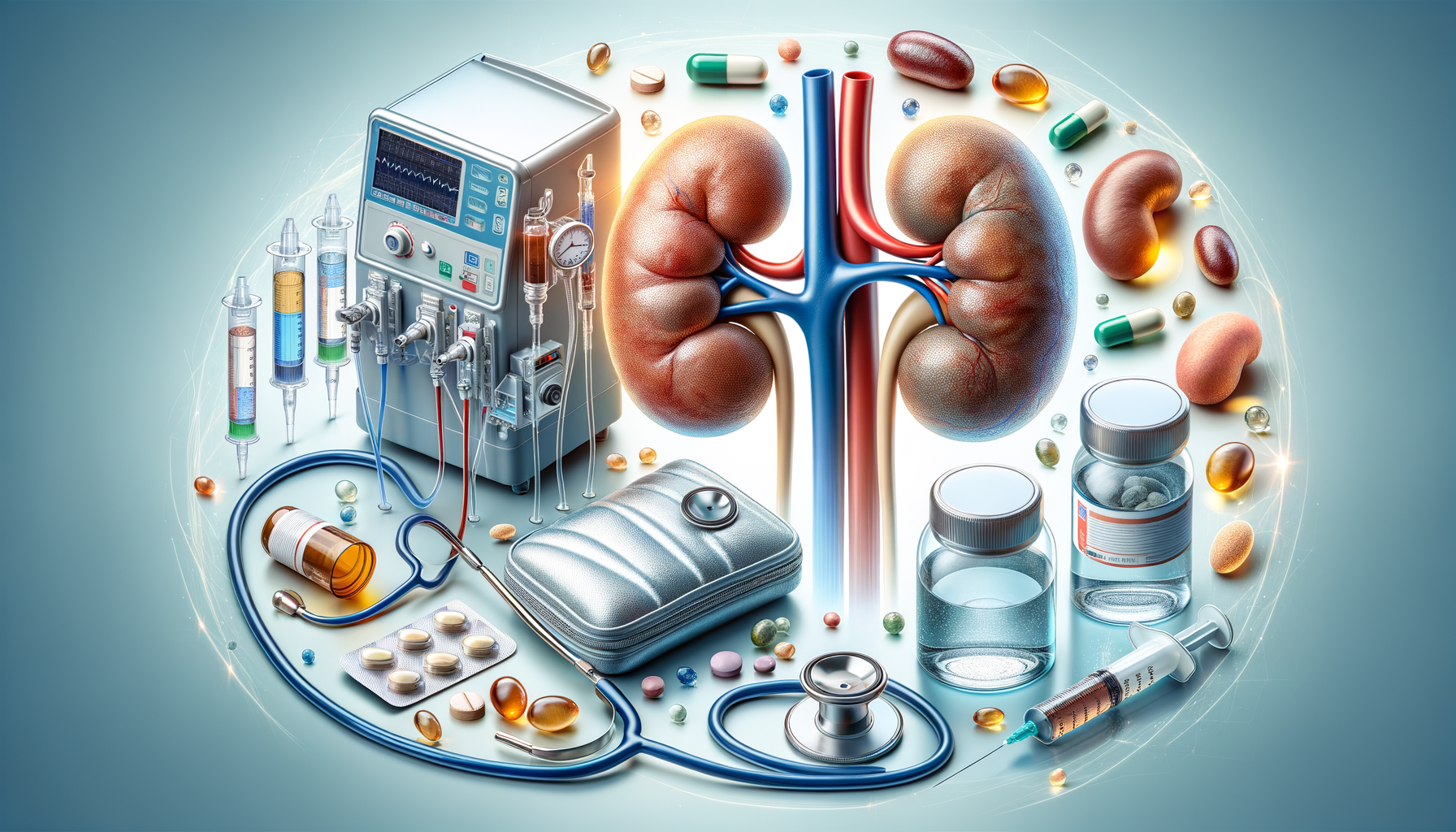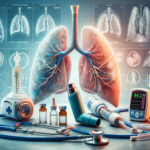Introduction to Kidney Disease and Its Impact
Kidney disease is a significant health concern affecting millions worldwide. It occurs when the kidneys, crucial for filtering waste and excess fluids from the blood, lose their ability to function effectively. This condition can lead to various complications, including high blood pressure, anemia, and nerve damage, highlighting the importance of early detection and management.
The kidneys play a vital role in maintaining overall health by regulating blood pressure, producing hormones, and balancing electrolytes. When their function is compromised, it can result in chronic kidney disease (CKD), a progressive condition that often goes unnoticed until it reaches advanced stages. Early intervention is key to slowing its progression and improving quality of life.
Understanding the treatment options available for kidney disease is essential for patients and healthcare providers alike. This article delves into the various treatment methods, offering insights into how they work and their effectiveness in managing the disease.
Conventional Treatment Approaches
Conventional treatments for kidney disease typically focus on controlling symptoms and slowing the progression of the condition. These approaches often include lifestyle changes, medication, and regular monitoring by healthcare professionals.
Key lifestyle modifications can have a significant impact on managing kidney disease. These include:
- Adopting a kidney-friendly diet: Reducing sodium, potassium, and phosphorus intake can help manage symptoms and prevent further kidney damage.
- Maintaining a healthy weight: Obesity can exacerbate kidney disease, so weight management is crucial.
- Regular exercise: Physical activity can improve overall health and support kidney function.
Medications are often prescribed to control blood pressure, manage blood sugar levels, and reduce cholesterol, all of which can contribute to kidney damage. Additionally, medications to treat anemia, a common complication of kidney disease, may be necessary.
Regular monitoring by healthcare providers is essential to track the progression of kidney disease and adjust treatment plans as needed. Blood tests, urine tests, and imaging studies are commonly used to assess kidney function and detect any changes over time.
Advanced Treatment Options
For patients with advanced kidney disease, more intensive treatments may be required. Dialysis and kidney transplantation are two primary options for managing end-stage renal disease (ESRD).
Dialysis is a procedure that artificially removes waste and excess fluids from the blood when the kidneys can no longer perform this function. There are two main types of dialysis:
- Hemodialysis: Involves using a machine to filter blood outside the body, typically performed in a clinic several times a week.
- Peritoneal dialysis: Utilizes the lining of the abdomen to filter blood, allowing for more flexibility and often performed at home.
Kidney transplantation offers a potential cure for kidney failure by replacing the diseased kidney with a healthy one from a donor. While this option can significantly improve quality of life, it also involves risks such as rejection and the need for lifelong immunosuppressive medication.
Choosing between dialysis and transplantation depends on various factors, including the patient’s overall health, availability of a donor, and personal preferences. Both options require careful consideration and consultation with healthcare professionals.
Innovative Therapies and Research
Advancements in medical research continue to pave the way for innovative therapies in kidney disease treatment. These emerging treatments aim to improve outcomes and offer new hope for patients.
One such area of research focuses on regenerative medicine and stem cell therapy. Scientists are exploring the potential of using stem cells to repair damaged kidney tissue and restore function. While still in experimental stages, this approach holds promise for the future of kidney disease treatment.
Another exciting development is the use of wearable artificial kidneys. These portable devices aim to provide continuous dialysis, offering greater freedom and convenience for patients compared to traditional methods. Clinical trials are underway to assess their safety and effectiveness.
Additionally, researchers are investigating new medications that target specific pathways involved in kidney disease progression. These drugs aim to address underlying causes and slow the deterioration of kidney function, potentially reducing the need for more invasive treatments.
As research progresses, these innovative therapies may revolutionize the way kidney disease is managed, offering new possibilities for improved patient outcomes.
Conclusion: Navigating Kidney Disease Treatment
Kidney disease is a complex condition that requires a comprehensive approach to treatment. From lifestyle changes and medication to advanced therapies like dialysis and transplantation, there are various options available to manage the disease effectively.
Early detection and intervention are crucial in slowing the progression of kidney disease and preventing complications. Patients should work closely with healthcare providers to develop personalized treatment plans that address their unique needs and circumstances.
As research continues to advance, new therapies and technologies offer hope for improved outcomes and quality of life for individuals living with kidney disease. Staying informed about these developments and maintaining open communication with healthcare professionals can empower patients to make informed decisions about their care.
Ultimately, understanding the available treatment options and actively participating in one’s healthcare journey can make a significant difference in managing kidney disease and achieving better health outcomes.








